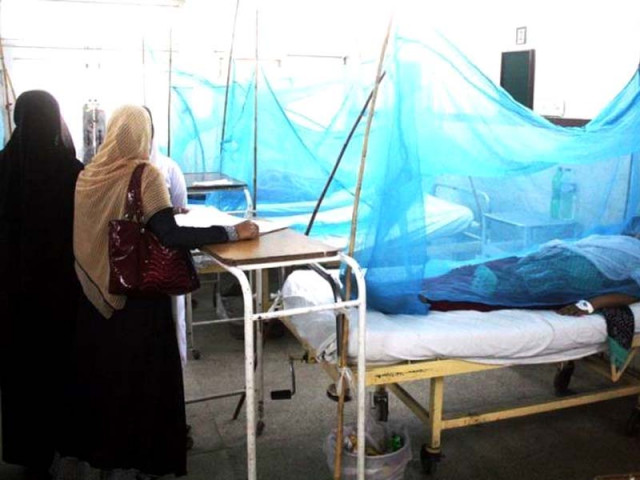People’s help sought to prevent outbreak in FATA
Health officials say they have traced the origin of the latest cases to Achine area on Peshawar outskirts

People's help sought to prevent dengue outbreak. PHOTO: FILE
Officials say that last year, cases were reported from the tribal areas located adjacent to the settled areas and it is believed that the virus travelled from those areas in ‘host’ patients who had a history of travelling between the two areas.
Virus threat: Interprovincial coordination, key to fight Dengue
As many as 80 cases have been confirmed so far this year and were traced back to Achine area located on the outskirts of the provincial capital.
Senior health officials stated that the government and dengue response unit in 2017 had worked to sensitise the people on how to avoid contracting the viral infection since everyone knew the mosquito responsible for spreading it could only survive if there was a breeding site available.
“You do not provide them [mosquitos] the opportunity [breeding sites], it [the infection] cannot turn into an outbreak,” the official said while requesting anonymity since he was no longer involved in the programme.
“If someone gets infected, they should be protected, kept in isolation but we have a culture of inquiring about the health condition of the sick and that too without following proper precautionary protocols and this is what makes it difficult for both of us [locals and health department],” the official said. “The first case was reported in Jamrud and was traced back to Achini area when the patient went to his uncle’s house and got infected,” Dr Muhammad Ismail, the head of the Malaria Control Programme, told The Express Tribune.
“Later, the patient’s relatives [who came to inquire after the patient’s health] also tested positive,” he elaborated.
Ismail stated that the first case of dengue was reported on August 8 but over the next three weeks until August 30, around 80 people have so far tested positive from Shah Kas, Tedi Bazar, Gharhiza and New Abadi areas, adding as soon as the first case was reported, Dengue Action Plan was devised and role and responsibility of every official was defined.
“Not only was a Dengue Response Unit (DRU) set up but Communication and Works (C&W), Agriculture, Forest and Livestock department officials have been taken onboard and teams constituted including lady health workers, community health workers and polio eradication campaigns as well,” he stated, adding that as many as 120 teams are out in the fields, including on Sundays.
Dengue season: Fumigation drive launched in Rawalpindi
However, he said that the heart of the issue lies within the community. He pointed out that despite the massive outbreak in 2017, people have yet to protect themselves.
“We cannot cover open water storage containers inside washrooms and these are the precautionary measures which the people have to take,” Ismail said.
When asked about the process for testing patients, Ismail stated that NS-1 Combo strips — which have over 90 per cent sensitivity were being used, adding that a majority of the cases tested positive for Type-2 of dengue, which is similar to the type which claimed the lives of around 70 people in Peshawar last year.
Published in The Express Tribune, September 1st, 2018.













COMMENTS
Comments are moderated and generally will be posted if they are on-topic and not abusive.
For more information, please see our Comments FAQ